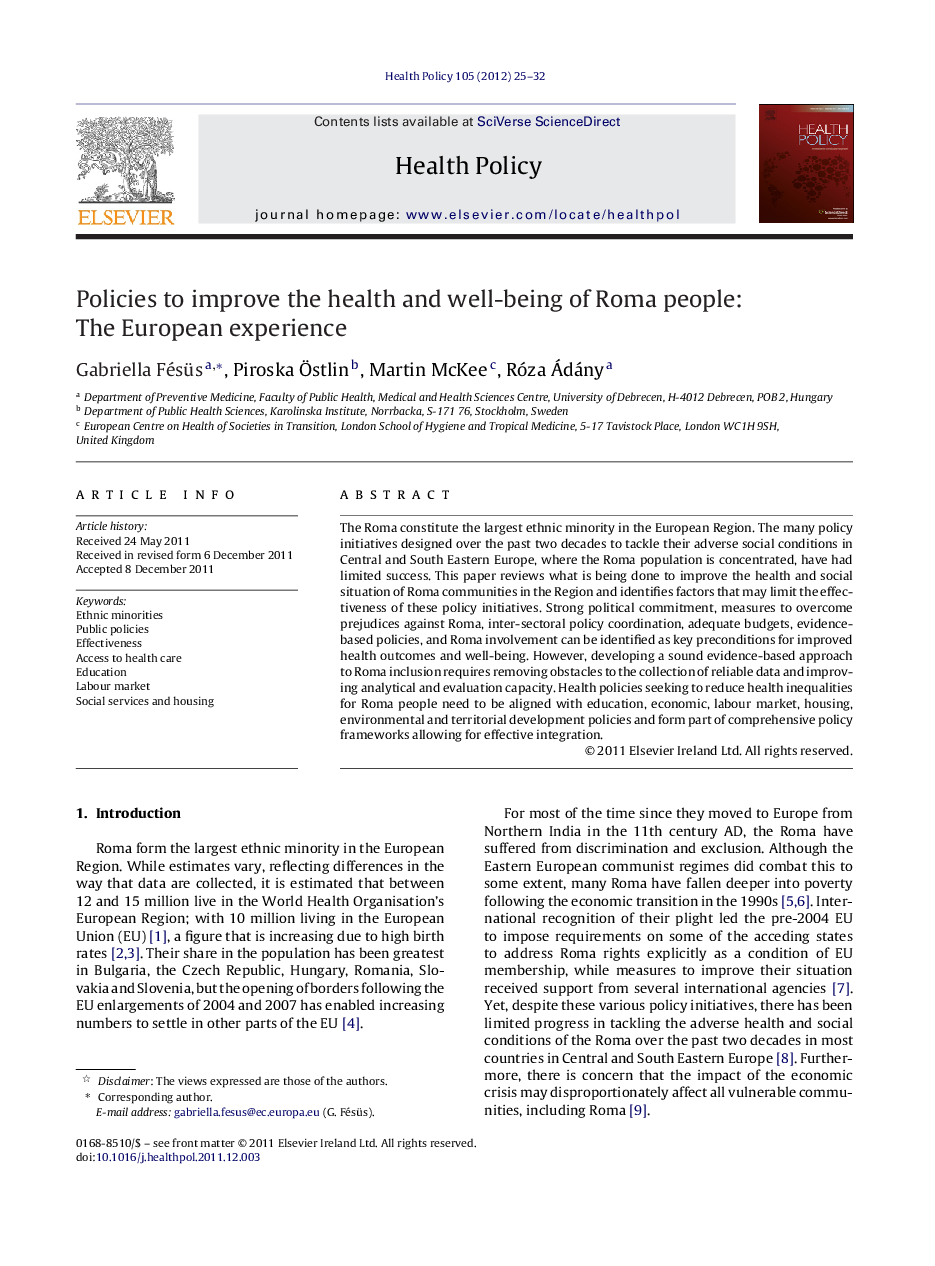| Article ID | Journal | Published Year | Pages | File Type |
|---|---|---|---|---|
| 4197945 | Health Policy | 2012 | 8 Pages |
The Roma constitute the largest ethnic minority in the European Region. The many policy initiatives designed over the past two decades to tackle their adverse social conditions in Central and South Eastern Europe, where the Roma population is concentrated, have had limited success. This paper reviews what is being done to improve the health and social situation of Roma communities in the Region and identifies factors that may limit the effectiveness of these policy initiatives. Strong political commitment, measures to overcome prejudices against Roma, inter-sectoral policy coordination, adequate budgets, evidence-based policies, and Roma involvement can be identified as key preconditions for improved health outcomes and well-being. However, developing a sound evidence-based approach to Roma inclusion requires removing obstacles to the collection of reliable data and improving analytical and evaluation capacity. Health policies seeking to reduce health inequalities for Roma people need to be aligned with education, economic, labour market, housing, environmental and territorial development policies and form part of comprehensive policy frameworks allowing for effective integration.
